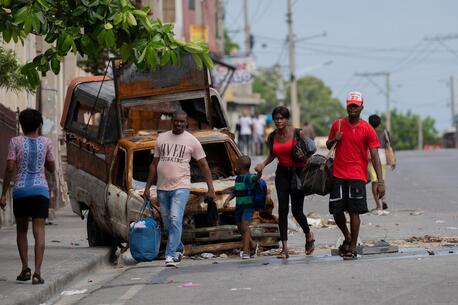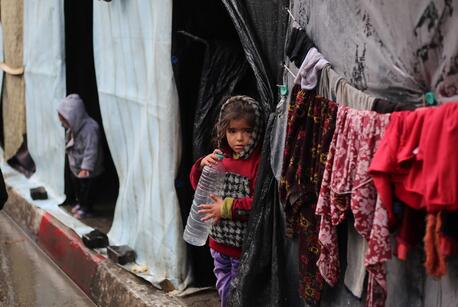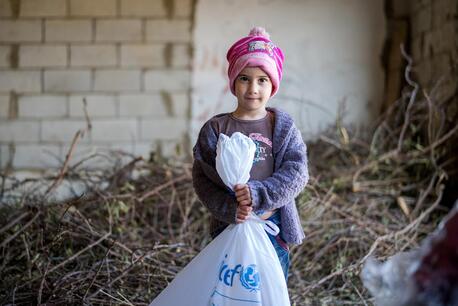
Children in Lebanon Are Paying the Price of 6 Months of Increasing Conflict
After six months of increasing cross-border conflict between Lebanon and Israel, 75 percent of children in Lebanon are at risk of poverty and every aspect of their lives is being severely impacted. Children living in Lebanon are dealing with near-daily airstrikes, displacement, disruption of education and lack of safe water and health services.
The situation in Lebanon is deteriorating as hostilities spread, threatening a full-scale war
The lives of children in Lebanon have been upended after six months of escalating conflict with Israel, according to a new UNICEF report released April 30. Almost 90,000 people — including over 30,000 children — have been forced from their homes since October, with that number likely to increase.
As hostilities have intensified, near-daily airstrikes are hitting deeper and deeper into Lebanon, putting more and more children and families at risk. By the end of April, these strikes had killed 344 people, including eight children and 21 women, and injured 1,359 people, including 75 children. Essential civilian infrastructure and facilities have been destroyed or damaged, disrupting education and access to water, sanitation and hygiene.
Read the report: Caught in the Crossfire: The Impact of Six Months of Conflict on Children in Lebanon
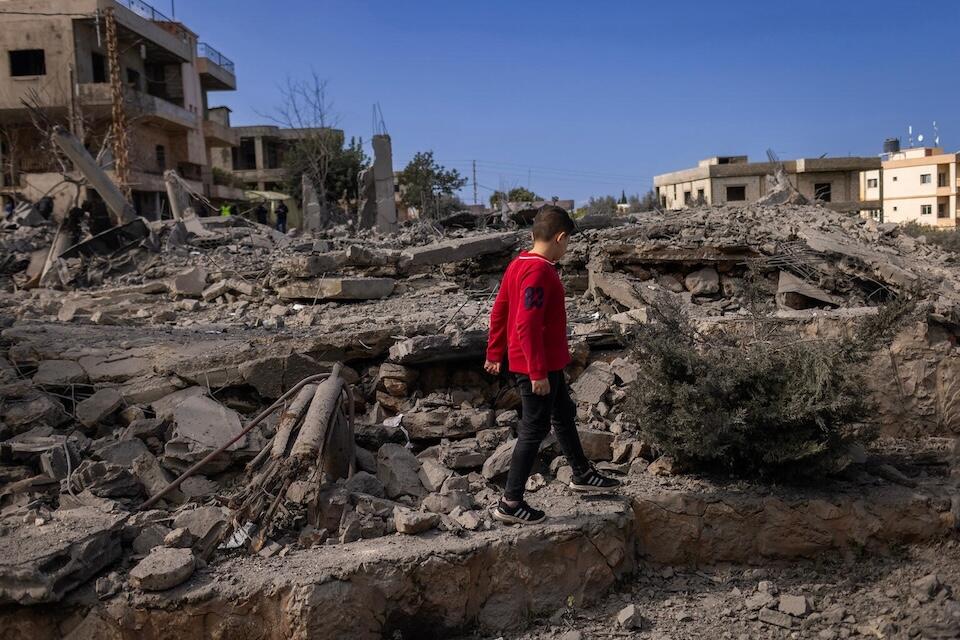
Children and their families face dwindling access to safe water, education, nutrition services and health care
The current conflict is the latest event in a cascading series of political and economic crises that have hit Lebanon in recent years, putting 75 percent of children in the country at risk of poverty and impacting every aspect of their lives.
Before October 2023, more than 700,000 children in Lebanon were already missing out on their education. With the partial or total closure of 72 schools in the south, that number has increased by 20,000 children. The disruption of regular in-person learning leads to an increased risk of child labor and early marriage for the most vulnerable, especially girls and children with disabilities.
Schools aren’t the only essential services that are being impacted by the conflict. Access to public health care has declined due to financial constraints, energy shortages and a lack of resources. With the complete or partial closure of 27 health facilities in southern Lebanon — ten primary health care centers and 17 dispensaries — tens of thousands of people have completely lost access to public health care.
I just want to go back home. I miss it. — Serge, from Kfar Kila, southern Lebanon
Essential services such as immunization, access to critical medications, maternal health care and pre- and postnatal care have been severed for more than 10,000 people, including 4,000 children. In addition, over 16,000 children under 5, 17,000 adolescent girls and 10,000 women living in areas where primary health care centers have closed are experiencing limited access to vital early childhood development and nutrition services.
Many families in Lebanon are also struggling to access safe drinking water, an existing crisis that has been exacerbated by increasing hostilities. Nine water facilities have been damaged or destroyed, leaving 100,000 people without safe water.
As more families are displaced by conflict, many children — especially those living in informal settlements — are faced with increased risks of water- and sanitation-related diseases worsened by overcrowding and inadequate sanitation facilities. Families who remain in targeted villages also risk having limited or no access to water until damage to water facilities can safely be repaired.
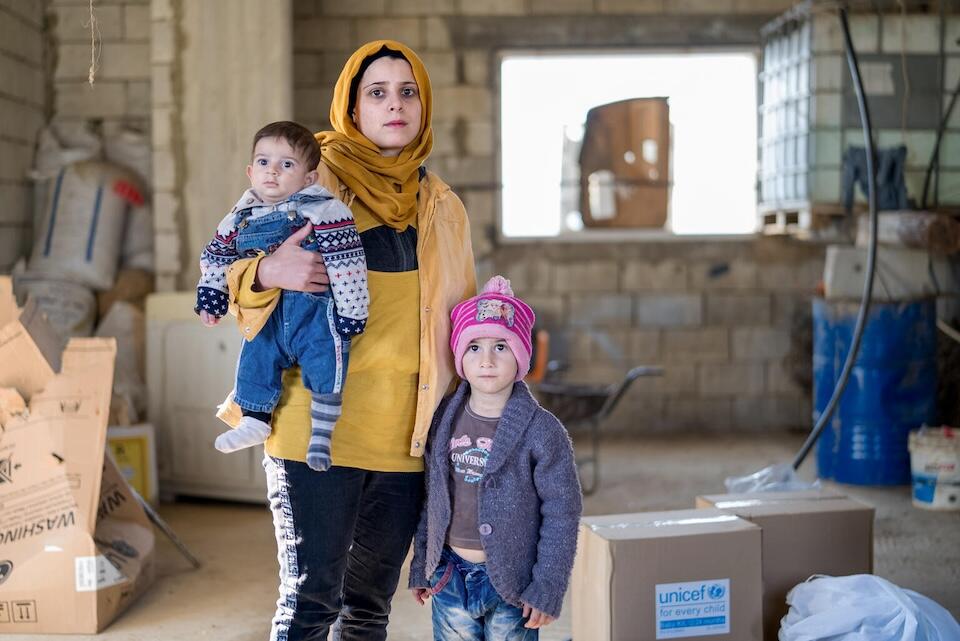
Displacement puts children at increased risk of child labor, recruitment by armed groups and gender-based violence
Although the number of children registered as separated from their families is relatively low, the potential for an increase looms as displacement rates rise. Displaced children are more likely to be forced into child labor, and at higher risk of being recruited and used by armed groups.
Increased displacement brings additional risks for women and children, such as gender-based violence, including emotional abuse and physical assault. Overcrowded living conditions and male-dominated spaces in displacement shelters often leave women and girls with a lack of privacy and limited safe spaces.
Alarming levels of psychological distress have been reported by children and their families due to the conflict, illustrating a profound toll on mental and physical health. Reports of anxiety and trauma have skyrocketed due to displacement as well as the relentless shelling and air raids.
I’m scared of the war and weapons. I hear them inside the camp, they are fighting and shooting each other here. — a child in southern Beirut's Burj el Brajneh camp for refugees and displaced people
UNICEF is on the ground in Lebanon helping to provide essential support to children and families. Throughout the cross-border conflict, UNICEF has worked with partners to provide:
- access to safe water for hundreds of thousands of people
- humanitarian cash transfers for displaced individuals and families
- packages of integrated nutrition and care for child development services
- essential health services for tens of thousands of children, adolescents and pregnant women
- child protection and gender-based violence prevention and response services
- inclusive education, learning materials and access to remote learning
- winter kits for displaced children and families
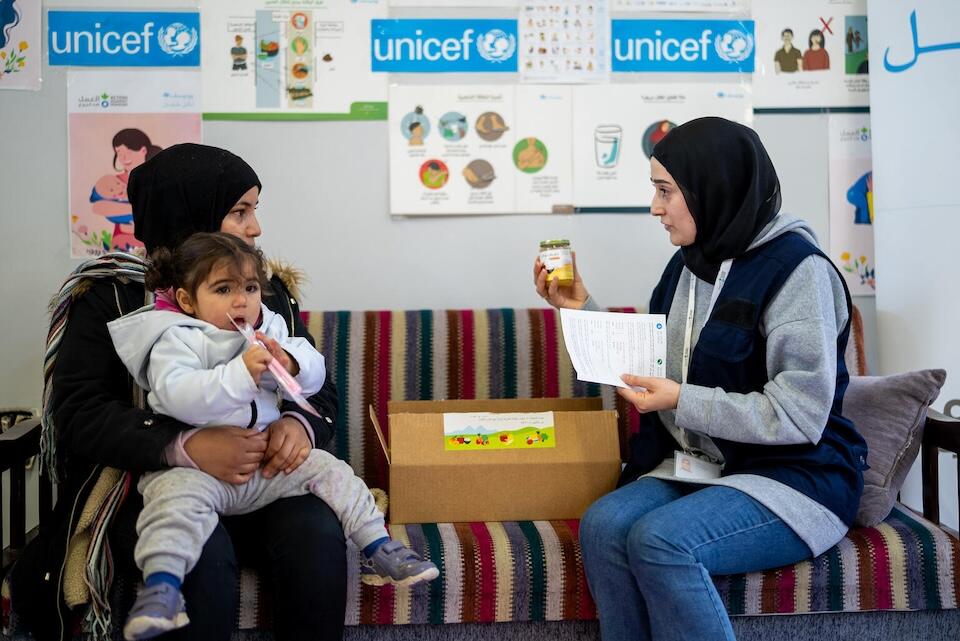
A permanent ceasefire is urgently needed
However, without a permanent ceasefire, Lebanon is at risk of a full-scale war, which would have a devastating impact on the 1.3 million children living in the country. In addition, Lebanon’s economy is projected to further deteriorate, leading a further decrease in access to critical services for marginalized and vulnerable groups, especially children. UNICEF remains committed to responding to the conflict and adjusting its approach as the situation evolves.
“As the conflict impacting the south of Lebanon is in its seventh month, we are deeply concerned by the situation of children and families who have been forced from their homes, and the profound long-term impact the violence is taking on children’s safety, health and access to education,” said UNICEF Representative in Lebanon, Edouard Beigbeder. “As long as the situation remains so volatile, more children will suffer. Protection of children is an obligation under the International Humanitarian Law and every child deserves to be safe.”
Every child has the right to a safe and healthy childhood. Help UNICEF reach children in need with lifesaving assistance.
